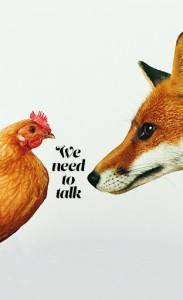At the beginning of this year I nearly gave up writing fiction for good, and here’s the reason why: I wasn’t actually writing any fiction.
I spent a lot of time writing about writing fiction. On Twitter and Facebook. To fellow aspiring-author friends, on the NaNoWriMo forums, even on this blog but it had started to feel fake. And every time I sat back down in front of my work in progress it took me longer and longer to get my head around what I was doing.
I’d add in whole paragraphs of exposition and then realise that I’d already written the exact same thing half a page later, but two years ago. I’d obsess over weaknesses in my characterisation which possibly weren’t there, or try to impose a new sub-plot wholesale. I was writing for half an hour, once every few weeks and that just wasn’t enough.
Publishers don’t care which particular dog ate your homework
There are, of course, lots of excuses. Freelance work, poverty, pregnancy and a little boy who spent a lot of time in hospital when he arrived. Not to mention the huge existential who-the-hell-am-I-now crisis of motherhood. But publishers don’t care which particular dog ate your homework. They’re probably not even going to bother reading your homework unless you make it really, really good.
So I got to the point where I became embarrassed every time someone asked me how my book was going. I didn’t feel like I could write any more. I should just throw in the towel. But writing fiction is something I’ve really wanted to do pretty much since I first learned to write. I really, really didn’t want to quit.
And that’s when I saw BBC Radio 4’s Opening Lines competition online. The deadline was in a week’s time so I set myself a challenge, write or die. Finish a short story or shut up about fiction forever.
So I did it – and I also really enjoyed it. The story was, of course, not a winner (winners here: all awesome.) But I finished it, and it read OK. A bit breathless, a bit too much action for a short story, but I wasn’t completely ashamed. And as I wrote I felt more and more certain that this was what I wanted to do with my life.
I’d ignored short story competitions before, thinking that any time spent writing something that wasn’t my novel was time wasted. But that experience made me realise my mistake. Time spent writing is time spent learning, practising and weeding out any bad habits and weaknesses. One of the most common bits of advice bandied around by published authors is: write every day. I think I’d add: write thoughtfully. Twitter and Facebook or anything else throwaway don’t count.
Write every day. Write thoughtfully
But the timing did suck a bit when I first heard about the Kindred Agency’s We Need To Talk project. It was a short story competition open to media types only, with the theme of difficult conversations. Problem was, the deadline was two days after my wedding.
It was crazy, but it was too good an opportunity to pass up. I carved a few hours out of my hectic flower-choosing, waxing and fake tanning schedule and spent it tinkering around with a very worthy domestic violence story I’d had cooking in my head for a while.
The result was godawful. Two days before my wedding, I ditched it.
Then I started writing about what was on my mind. An insane bride so obsessed with having the perfect wedding and the perfect life that she’s driven her best friends away. I even named some of the long-suffering characters after my friends – until they developed some pretty serious flaws (not related to my real friends) and I had to rename them all.
The result was 2,000 words of pure silliness but I had done it. I submitted the story and, to my huge excitement, it was selected.
So in September this year, my first ever fiction story appeared in print. (Buy it here! Buy it, buy it!!) After years of reworking and moulding other people’s words and stories with every paragraph overseen and edited, I’d written something that came straight out of my brain and with a few tweaks it appeared in print. My actual name is actually searchable on Amazon! It was such a joyful feeling.
And no, I’m still not making any progress on my novel. But is my writing progressing? Yes. And that can only be good.
